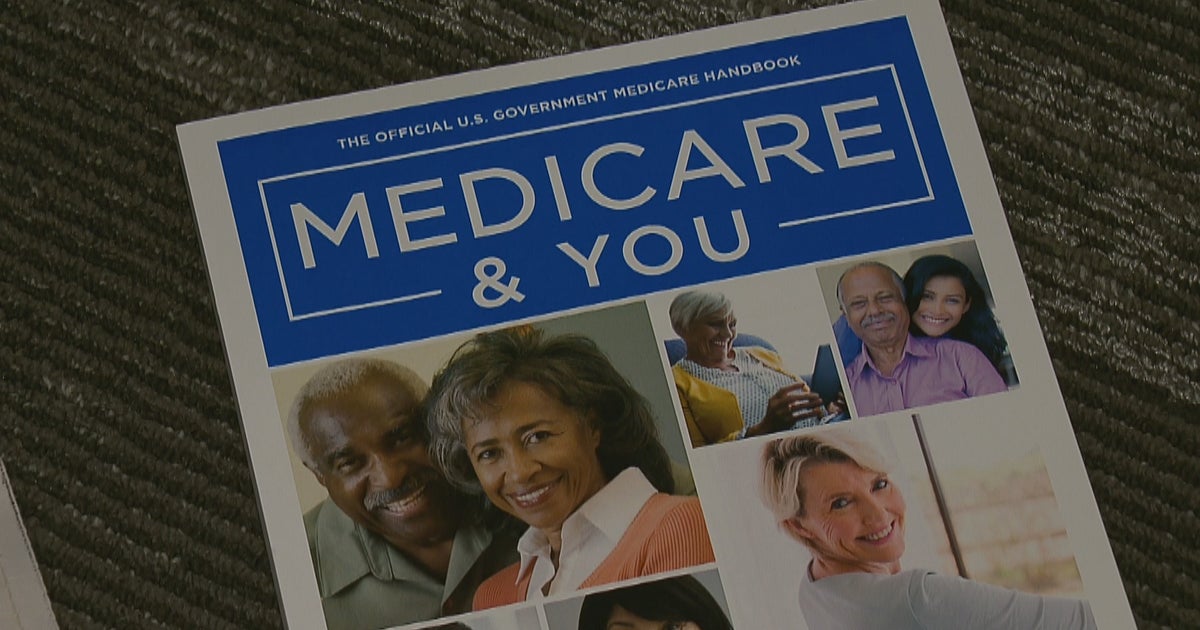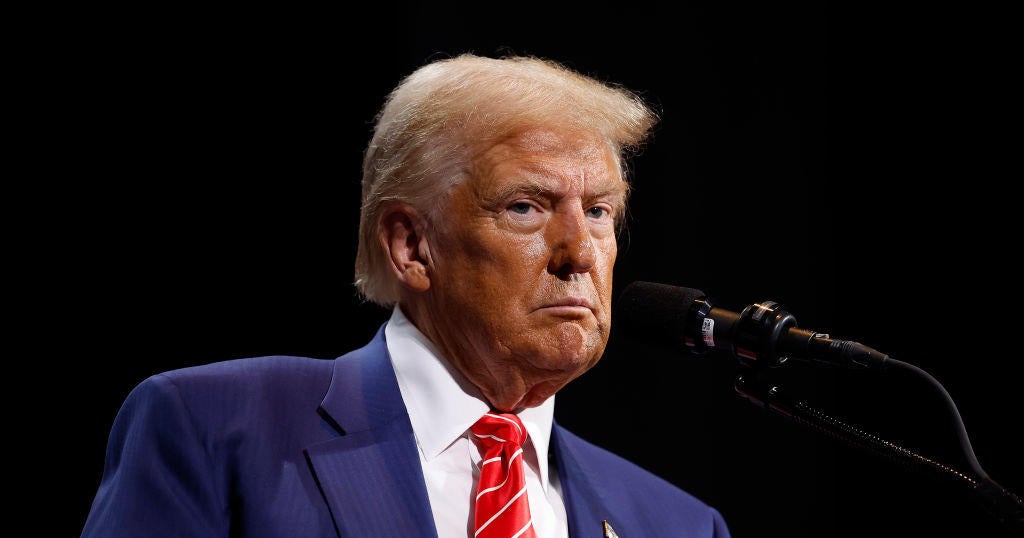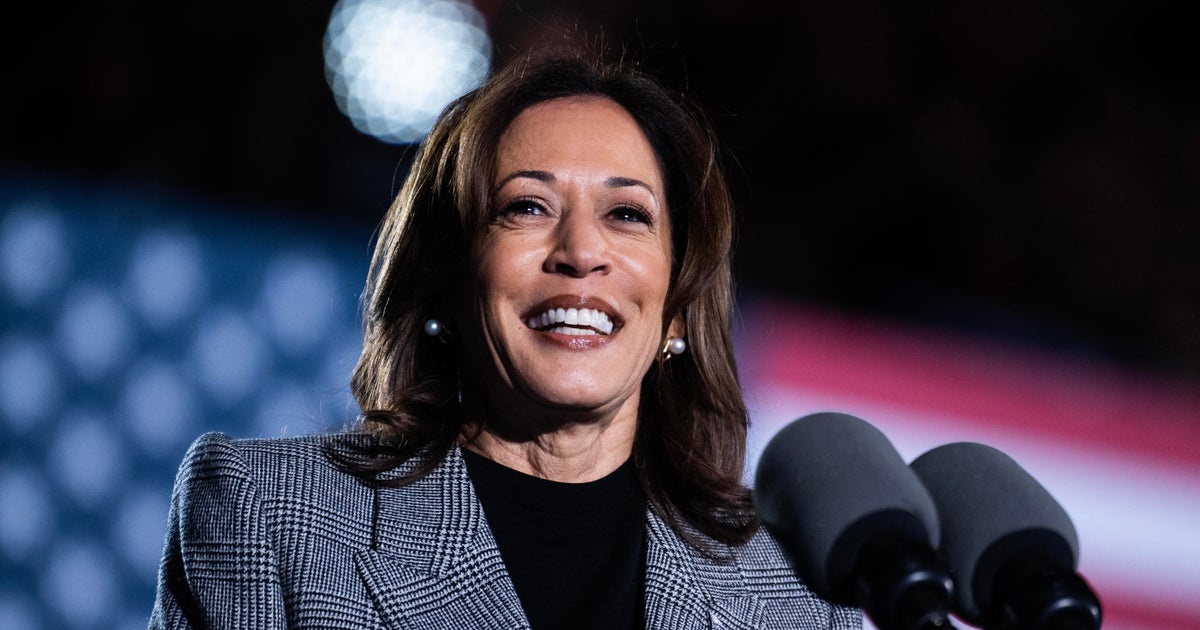CBS News
How Harris and Trump’s stances on Medicare compare for 2024

The future of Medicare, America’s sweeping health insurance program for older adults, continues to come up on the campaign trail from both Vice President Kamala Harris and former President Donald Trump during this final stretch leading up to the 2024 presidential election.
This year’s voting comes at a time when the 67.5 million Americans enrolled in Medicare plans are starting to see significant changes, largely resulting from the Inflation Reduction Act that Vice President Kamala Harris cast a tie-breaking vote for in 2022.
Harris has touted the law’s more generous prescription spending benefits for seniors, which Biden administration officials say have not resulted in feared premium spikes or cutbacks for most drug plans.
Some of that “stabilization” is the result of billions poured into premium-lowering efforts, which Republicans have voiced frustration over as an “election year stunt.” Premiums for Medicare Part B are also continuing to grow, up to an estimated $185 monthly in 2025.
The act has also offered some respite for lawmakers grappling with the program’s long-running insolvency crisis, as spending is still outpacing the taxes that fund it. Medicare’s trust fund now has until 2036 before it is set to run out, thanks in large part to savings from the law and an economic rebound following the COVID-19 pandemic.
Harris wants to expand Medicare benefits
Harris has made her proposal to expand Medicare’s coverage for home health care aides a common part of her stump speech in recent weeks. The plan also calls for adding coverage for hearing and vision benefits to Medicare.
Expanding the new benefits could be paid for by a separate Harris proposal to expand the Medicare Drug Price Negotiation Program, which was created by the Inflation Reduction Act.
The price caps program under its current design will be too small to cover the expanded benefits Harris wants. But the campaign has pointed to estimates suggesting that billions more could be recouped by a more aggressive approach to its price caps and other drug cost reforms, if Congress signs off.
Former President Donald Trump’s campaign responded to the Harris announcement by pointing to their own promises in the Republican platform this year, including “shifting resources back to at-home care.”
They also cited changes Medicare made during the COVID-19 pandemic under Trump, like expanding access to telehealth providers.
Trump wants to block Medicare age increases
A frequent applause line at Trump’s rallies is his pledge to block any increases to the eligibility age for Medicare coverage, which is currently set at 65 years old, and to eliminate income taxes on Social Security benefits.
“I will fight for and protect Social Security and Medicare. There will be no cuts, and we won’t be raising the age, like they’re going to end up doing,” Trump told supporters at a Pennsylvania rally on Oct. 9.
Those promises could add to the steep challenges facing Congress, as it navigates the thorny solutions to Medicare insolvency. Though the deadline for Medicare running out of money has been pushed back, officials have warned Congress that delaying action now to shore up the fund will force even more painful changes down the road.
While Trump has painted his pledge as a broadside against his Democratic rival, the retirement age issue was actually a point of division within his own party during the GOP primary. House Democrats have also railed against some of their GOP colleagues over a plan that suggested “modest adjustments to the retirement age” down the road.
Harris accuses Trump of backing cuts to Medicare
Democrats have accused Trump of backing cuts to Medicare for years, despite his repeated vows not to cut the program’s funding.
The Harris campaign has revived attacks from Trump’s first term, which claimed his proposed budgets were cutting “Medicare support for hospitals and other providers under the guise of eliminating wasteful spending.”
“Now Donald Trump has a different approach. He tried to cut Medicare and Social Security every year he was president,” Harris said on Oct. 29, in remarks near the White House that the campaign billed as her closing argument.
At the time, Trump White House officials defended the savings as good government reforms and said Medicare’s funding would still grow under the budget. The changes largely echoed recommendations by a nonpartisan advisory commission to improve the program, and outside budget watchdogs agreed it would not directly impact beneficiaries.
Harris has also claimed that her Republican opponent would cut Medicare and overturn provisions the Inflation Reduction Act added, like the Medicare Drug Price Negotiation Program. As evidence, she cites proposals in the Heritage Foundation’s “Project 2025” platform, written by Trump allies, despite his own disavowal of the document.
Trump accuses Harris of “bankrupting” the program
On the trail, Trump most often brings up Medicare when accusing Harris of “bankrupting” the program. He frames the attack the same way he did against President Biden earlier this year, before Mr. Biden dropped out, claiming a surge of migrants was “destroying” Medicare.
“They’re allowing millions of these people to go into Social Security, Medicare. They’re going to destroy it,” Trump said on Oct. 29, in remarks from his Mar-a-Lago resort in Florida.
Under current law, undocumented immigrants are not eligible for Medicare. Only some “lawfully present immigrants” can get premium-free Medicare, typically only after those seniors have paid payroll taxes in enough years.
A more nuanced version of Trump’s attack, published by his campaign, points to Harris’ support for an “earned pathway to citizenship” for immigrants. The Trump campaign claims this could “make millions of low-wage migrants into US citizens” and threaten the survival of the program.
This echoes a similar claim that has come up in Washington for years. A failed immigration reform effort in 2013 that sought to carve out a “pathway to citizenship” was projected to result in higher Medicare spending to cover the additional people, though it was also projected to bring in more tax revenue that could outweigh the increased expenses.
The Harris campaign has promised to solve Medicare’s funding shortfall “by making corporations and the wealthiest Americans pay their fair share in taxes.”
CBS News
United Airlines passenger attacked while sleeping on flight from San Francisco: “His face was bruised and bloody”

A man on a cross-country United Airlines flight violently attacked a sleeping passenger, punching him repeatedly in the face until it was bloody, authorities said. A witness said the man who was attacked is deaf and nonverbal.
Authorities identified the suspect as Everett Chad Nelson, according to an affidavit from an FBI agent.
The incident unfolded Monday on United Flight 2247 about two hours after it took off from San Francisco International Airport for Washington Dulles International Airport in Virginia.
Nelson got up from seat 35F toward the back of the Boeing 737 and went to the lavatory near the front of the plane, according to the affidavit. When he was returning to his seat, he stopped at seat 12F and started punching the man who was sleeping there, according to the affidavit, which didn’t identify the victim.
Sandhya Gupta, who was sitting behind the sleeping man, watched the attack unfold.
“I will not forget the look in his eyes,” Gupta told CBS News. “I had not seen a look from anyone’s eyes like that. It was like he was seeing through the victim.”
According to the FBI affidavit, the attack lasted about a minute. The man screamed as Nelson kept hitting him and his blood was seen on the sleeves of Nelson’s windbreaker, a nearby seat and on the plane’s wall and window, according to the affidavit.
“I actually wondered does this guy have a weapon because I didn’t realize you could do so much damage with just your fists,” Gupta told CBS News. “… His face was bruised and bloody.”
Another passenger rushed up the aisle and wrapped his arms around Nelson to stop him, Gupta said.
“He didn’t fight the person who came to subdue him,” Gupta said. “It was like powering off a robot.”
A doctor on the flight ran toward the man who was attacked and started administering first aid, Gupta said. She said she realized he was deaf and nonverbal when he started signing at the people helping him.
According to the affidavit, the man sustained bruising to his eyes and a gash on his nose. Nelson didn’t appear to be injured, and there wasn’t any indication that the man fought back, according to the affidavit.
Nelson was taken to a seat toward the front of the plane and monitored by the passenger who stopped the attack, according to the affidavit. Gupta said he wasn’t restrained after the attack.
“He just went limp,” Gupta said.
In a statement, United praised the reaction of the passenger and crew.
“Thanks to the quick action of our crew and customers, one passenger was restrained after becoming physically aggressive toward another customer on a flight from San Francisco to Washington Dulles on Monday. The flight landed safely and was met by paramedics and local law enforcement,” the airline said.
Gupta said a flight attendant told her that Nelson claimed the man had attacked him in the street earlier.
“He kept texting, ‘I’m innocent,'” Gupta said.
The Federal Aviation Administration said in a statement it was investigating the incident. According to the agency, airlines have reported over 1,740 unruly passenger incidents this year and that such incidents have dropped from the record highs reached in early 2021.
Kathryn Krupnik and Ryan Sprouse contributed reporting.
CBS News
Trump’s net worth slumps by as much as $2.4 billion amid DJT stock plunge

Trump Media & Technology Group has had a wild stock market ride this month. After quadrupling in price just days before, the stock on Thursday plunged as much as 39% since its intraday high on Tuesday. The two-day decline has shaved more than $2.4 billion from former President Donald Trump’s stake in the business, which trades under the ticker DJT, the same as his initials.
Trump Media, which owns the Truth Social app, shed $5.35, or 13.4%, to $34.68 in early afternoon trading on Thursday, after touching an intraday low of $33.41. That comes after a 22% tumble on Wednesday, which followed more than five weeks of market gains, sending the shares to a Tuesday intraday high of $54.68.
Because of their volatility, DJT has earned comparisons to meme stocks, or companies that trade on social media buzz rather than revenue growth or profitability, investors’ favored yardsticks. Despite Truth Social’s declining revenue and large losses, Trump Media shares surged for much of October as polls in the presidential race tightened and as betting markets such as Polymarket predicted odds in Trump’s favor to win.
It’s not exactly clear what sparked the two-day sell-off, but DJT shares have attracted a number of speculators and short sellers, with the latter betting the stock would fall. Some of the October surge in DJT shares could have come from short sellers forced to cover their bets, which requires them to buy stock and create a so-called short squeeze, which can send shares higher, according to research group S3 Partners.
“Trump and Media Group (DJT) stock, closely tied to Trump’s election chances, faces high squeeze risk due to limited float and elevated short interest,” S3 wrote on Tuesday. “Trump’s 57% stake and current short losses intensify squeeze potential.”
Trump’s stake in DJT
Trump owns about 115 million shares of Trump Media, making him the largest investor in the fledgling social media company. At its most recent intraday peak of $54.68 on Tuesday, his stake was valued at almost $6.3 billion.
But the two-day sell-off has whittled the value of that stake to about $3.8 billion, based on Thursday’s intraday low.
To be sure, those losses represents paper wealth, and Trump has vowed not to sell his shares after a lock-up period expired last month, which now enables him to liquidate his stake. Because Trump owns almost 60% of the company’s stock, selling even a portion of his stake could flood the market with available shares, potentially lowering its price.
Many of the other DJT shareholders are small investors who bought shares as a way to express support for the former president. On Thursday, as the stock tumbled for a second day, some of its shareholders vowed revenge in the months to come, with some blaming short sellers and others pointing to the U.S. Securities and Exchange Commission (SEC.)
“I was happy to strap my investment dollars to @realDonaldTrump and take all the financial arrows with him,” wrote Chad Nedohin, a minister and shareholder who runs a DJT group on Truth Social. “The more they try to hurt DJT, the worse it’s going to be for them in 2025.”
Nedohin added #TrumpTheSEC at the end of his post.
CBS News
U.S. imposes sanctions on top members of armed wing of Mexican cartel linked to 2019 killings of 9 Americans

The U.S. imposed sanctions Thursday on senior members of the armed wing of a Mexican drug cartel that operates on border territories in and around Chihuahua, Mexico. The cartel has also been linked to the 2019 ambush that killed nine Americans in Mexico.
Five Mexican citizens and two companies linked to La Linea, a violent Mexico-based drug trafficking organization that smuggles fentanyl and other synthetic drugs into the U.S. on behalf of the transnational Juarez Cartel, were hit with economic sanctions Thursday.
The latest action is meant to stem a major source of the fentanyl coming into the U.S; the powerful opioid is the deadliest drug in the U.S. today. The Centers for Disease Control and Prevention states that drug overdose deaths in the U.S. have increased more than sevenfold from 2015 to 2021, though the agency reported a 3% decline in the number of drug overdose deaths this year.
Mexico and China are the primary sources of fentanyl and fentanyl-related substances trafficked directly into the U.S., according to the Drug Enforcement Administration, which is tasked with combating illicit drug trafficking. Nearly all the precursor chemicals that are needed to make fentanyl come from China.
La Linea and the Juarez Cartel are known for inflicting violence on innocent people, and U.S. authorities have tried to pursue them – in July 2022, a North Dakota federal judge ordered La Linea to pay $4.6 billion in monetary damages to the families of nine Americans killed in an ambush in Northern Mexico on Nov. 4, 2019.
Marco Ugarte / AP
Deputy Treasury Secretary Wally Adeyemo said in a statement Thursday that “if La Linea continues to directly contribute to the proliferation of deadly fentanyl throughout our communities, Treasury will continue to use every tool in our arsenal to go after their criminal activity.”
The Biden administration has taken a slew of actions against fentanyl traffickers — charging powerful traffickers with drug and money laundering offenses and announcing indictments and sanctions against Chinese companies and executives blamed for importing the chemicals used to make the dangerous drug.
In December 2023, Treasury Secretary Janet Yellen launched a Counter-Fentanyl Strike Force that brings together personnel and intelligence from throughout the Treasury Department — from its sanctions and intelligence arms to IRS Criminal Investigations – to more effectively collaborate on stopping the flow of drugs into the country.
And President Biden signed into law the bipartisan FEND off Fentanyl Act as part of the supplemental spending package signed in April, which among other things, declares that the international trafficking of fentanyl is a national emergency.
Combatting fentanyl has increasingly become a political issue. Republicans say fentanyl smuggling across the U.S.-Mexico border should be viewed alongside migration issues, which are a focal point of the 2024 presidential election.
Republican presidential nominee Donald Trump has blamed migrants for the trafficking of drugs like fentanyl, even though federal data suggests many people smuggling fentanyl across the border are U.S. citizens.
Over the past two years, Treasury has sanctioned more than 350 people and firms connected to drug trafficking, from cartel leaders to labs and suppliers.
Last month, the U.S. sanctioned a man known as “The Tank” who allegedly leads the fuel theft arm of Mexico’s hyper-violent Jalisco New Generation cartel .
In July, the U.S. imposed sanctions on a group of Mexican accountants and firms allegedly linked to a timeshare fraud ring run by the Jalisco cartel in a multi-million dollar scheme targeting Americans.
The month before that, U.S. officials announced economic sanctions against eight targets affiliated with a Mexican drug cartel, La Nueva Familia Michoacana, accused of fentanyl trafficking and human smuggling. Among the leaders targeted was an alleged assassin named Uriel Tabares Martinez. According to the Treasury Department, he is known as “El Medico” (“The Doctor”) for the violent and surgical manner in which he tortures and kills those who cross the high-ranking members of the cartel.







